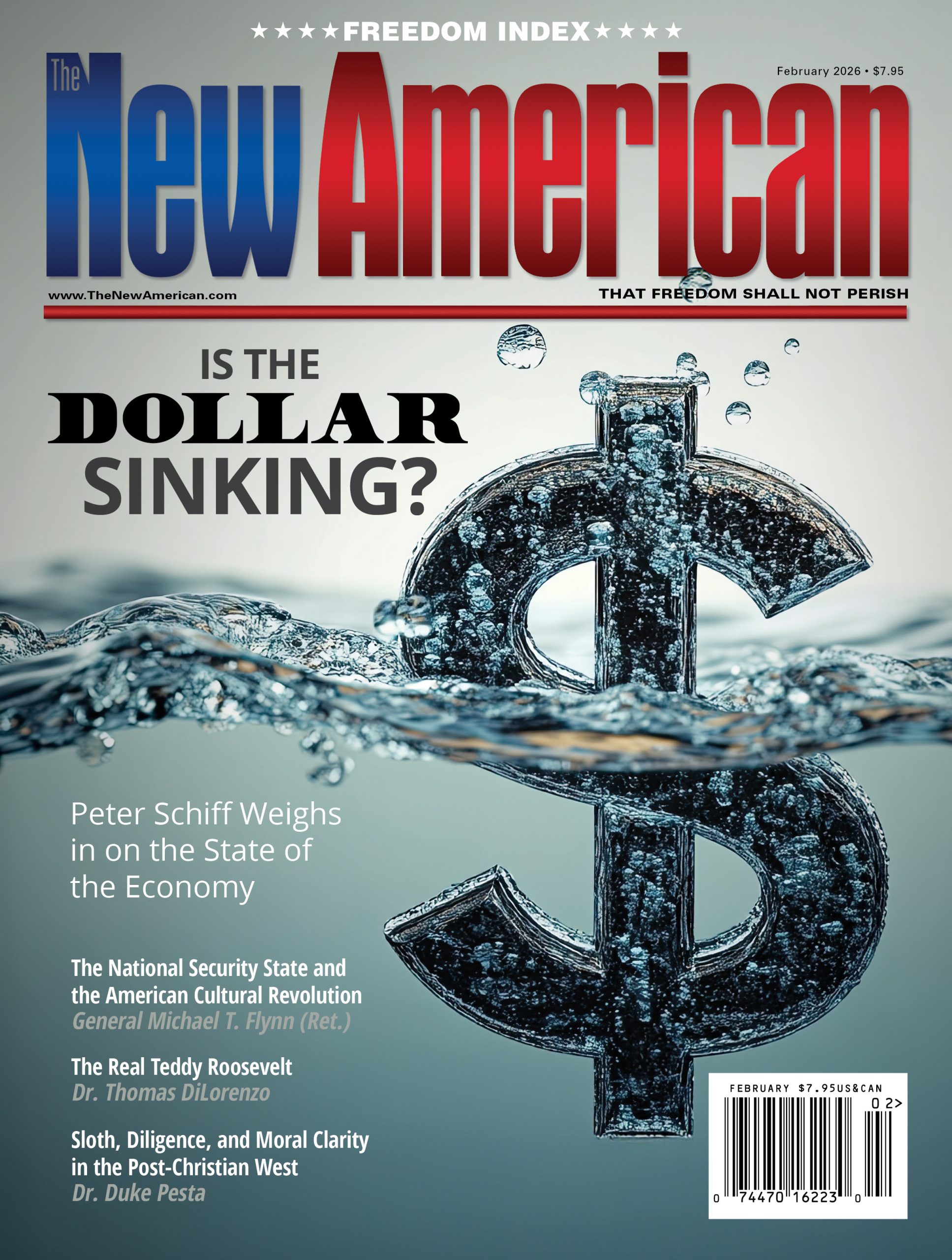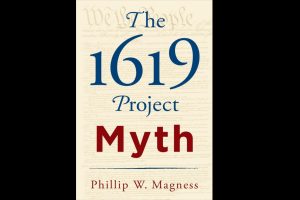
Economics a Hot Topic in Woods’ Book “Meltdown”
Meltdown: A Free-market Look at Why the Stock Market Collapsed, the Economy Tanked, and Government Bailouts Will Make Things Worse, by Thomas E. Woods, Jr.
The last few years have been kind to the freedom cause, at least if book sales are any evidence. First came Thomas Woods’ debut in popular nonfiction, The Politically Incorrect Guide to American History, which rose to become the number two bestseller on Amazon.com, and occupied the New York Times nonfiction bestseller list for many weeks. Then Congressman Ron Paul published The Revolution: A Manifesto in the wake of his presidential campaign. The concise, elegantly written book was a number one bestseller, and has done much to publicize Dr. Paul’s long-standing campaign for freedom and constitutionally limited government.
Now Thomas Woods has hit a second home run with the not-so-concisely titled Meltdown: A Free Market Look at Why the Stock Market Collapsed, the Economy Tanked, and Government Bailouts Will Make Things Worse. Meltdown, to which none less than Congressman Paul contributed the foreword, debuted at #16 on the New York Times nonfiction bestseller list and, at the time of this writing, occupies the #14 slot after four weeks.
Warming Up to a Cold Topic
Nor is Meltdown undeserving of its popularity. Its author, a Harvard and Columbia-trained historian by credentials, has produced a best-selling, mass-appeal book on Austrian "free market" economics — a feat that the Mises and the Rothbards of the past, and the Hoppes and Hülsmanns of the present, have never managed to accomplish. This is not to diminish the achievements of the Austrian school or any of its proponents, who for more than a century have defied the prevailing statist winds of economic theory to erect and defend the magnificent edifice of modern free-market, laissez-faire economics.
In this writer’s view, it is a terrible shame that so few, even among the partisans of liberty, are willing to make the effort to read Mises’ Human Action or Rothbard’s Man, Economy, and State, let alone the dozens of other luminous offerings by these and other Austrian economists. But few are disposed to read a book of 800 or a thousand pages on any subject, let alone economics. The closest thing to an Austrian bestseller until now is Friedrich Hayek’s Road to Serfdom, which is less an economic study than a work of political philosophy, and withal not one of Hayek’s most ideologically consistent offerings. Were Henry Hazlitt or even Leonard Read alive today, gifted as they were with clean, epigrammatic prose, they might have written the likes of Meltdown.
They might. But Thomas Woods has proven with Meltdown to be a popularizer second to none, a gift sorely needed, particularly when it comes to capturing the attention and holding the interest of a sluggish if not altogether silent majority who instinctually oppose Big Government but have not educated themselves in any depth.
In Meltdown hitherto-unapproachable topics like the Federal Reserve and the business cycle are dissected and reduced to clear and pithy descriptives, spiced with Dr. Woods’ barbed wit. A sample:
As several economists have noted, blaming the crisis on "greed" is like blaming plane crashes on gravity…. The current crisis was caused not by the free market but by the government’s intervention in the market. This is not special pleading on behalf of the market, but the clear verdict of both theory and experience…. As predictably as night follows day, the dopes who didn’t see the crisis coming and said everything was fine are the ones George W. Bush and Barack Obama alike have looked to for advice on how to reverse it.
We are in trouble.
Turning Up the Heat on the Fed
As Woods correctly diagnoses, the Federal Reserve System is the main culprit for the economic meltdown — the "elephant in the living room," Woods styles it, because so few, even among so-called conservatives, are willing to look askance at the Fed. It is fashionable on the political right to ascribe blame for the recession on the financial distortions produced by the Community Reinvestment Act and the quasi-government agencies Fannie Mae and Freddie Mac, but blaming such programs, noxious though they are, for the enormity of the crisis is akin to, in another of Woods’ bons mots, "divert[ing] attention to the patient’s runny nose and away from his cancer."
And in Meltdown the full scope of the Fed’s complicity in events is revealed in language a bright fifth grader could understand. Inflation, fiat money, the rudiments of Keynesian economics, fractional reserve banking — all are laid bare and (which is more important still) rendered interesting to the non-specialist and even the non-bookish. It’s not too much of a stretch to say that Meltdown is the closest thing to a "gripping" work of nonfiction this author has read in a very long time.
But Woods is first and foremost a historian. His love of a good tale (in this case, a tale of deceit and skullduggery) is evident in chapter five, where he manages, in 20 pages, to deliver a concise history not only of the Great Depression and its real causes (hint: the Fed and Big Government had something to do with it), but also of banking and the boom and bust business cycle from the inception of the American republic.
Boom and bust did not originate with the Federal Reserve System but with fractional reserve banking, a distinctly modern innovation that came about when banks began to confuse the deposit and the loan functions, and to create money by pyramiding loans on top of non-existent reserves. But the Federal Reserve, by creating a true banking cartel, allowed banks to inflate the money supply much more concertedly than had ever happened in the past, leading to much more acute inflationary economic bubbles and correspondingly more severe recessions and depressions. Not for nothing is the current bubble being termed, by Peter Schiff and others, the greatest asset bubble in history.
If Meltdown is anywhere deficient, it would be perhaps in failing to emphasize enough how economic bubbles are Big Government’s best friend. Inflationary booms allow the state to finance all sorts of conceits, from wars of imperial expansion to heedless public works projects, that would never be tolerated if the public were obliged to pay for them by direct taxation. But they also permit government to raise taxes to obscene levels, because the public, confident that the values of their real estate holdings and stock portfolios will rise indefinitely, have little objection to ponying up confiscatory sums of income and capital gains taxes. Why begrudge the state its pound of flesh as long as the good times continue to roll?
As a result, the decades corresponding to the bubble that is now bursting — the ’80s and ’90s — saw tax rates and revenues balloon to unexampled proportions. During that same time, the size, intrusiveness, and cost of government have reached levels that would dismay our grandparents, not to mention the founding generation. Yet the American public has been complacent because the gains in the stock market and housing prices have made (nearly) Everyman a paper millionaire. Public officials have been delighted at the windfalls, and have not scrupled to transform our once-limited federal government into the largest, most powerful, and most expensive superstate the world has ever seen. And all of this has come about courtesy of the Federal Reserve and the magic of monetary printing presses.
Now, of course, the bloom is off the rose, so to speak. Stock portfolios and asset values are shrinking like laundered wool, but tax rates, and the dimensions of the government they help to support, are unchanged.
This may be the reason Meltdown is so popular. The economic bust is forcing people to take an interest in economics and to seek to understand the forces that are reshaping our lives and lifestyles. If the crisis grinds on much longer (and it will), the thing that the Ben Bernankes and the Timothy Geithners of the world fear most may come to pass: the Federal Reserve System, in all its unalloyed villainy, may finally be exposed to the general public and abolished by popular demand. For those who want to stay ahead of the public’s learning curve, however, Meltdown is indispensable, educational, and entertaining reading.




